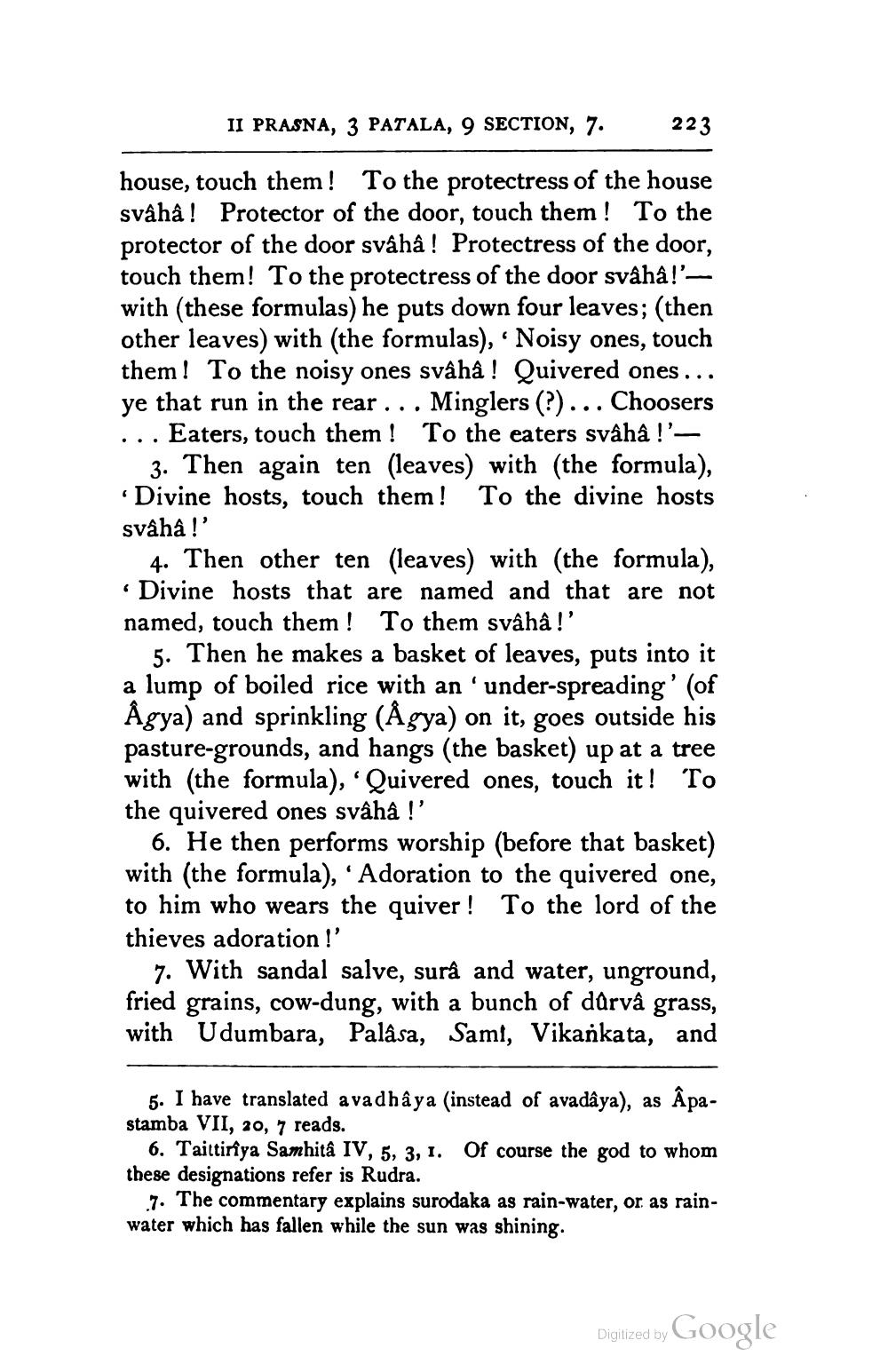________________
II PRASNA, 3 PATALA, 9 SECTION, 7.
223
house, touch them! To the protectress of the house svâhâ ! Protector of the door, touch them! To the protector of the door svâhâ ! Protectress of the door, touch them! To the protectress of the door svåhå!'with (these formulas) he puts down four leaves; (then other leaves) with (the formulas), · Noisy ones, touch them! To the noisy ones svâhâ ! Quivered ones ... ye that run in the rear ... Minglers (?)... Choosers ... Eaters, touch them! To the eaters svâhâ !'
3. Then again ten (leaves) with (the formula), • Divine hosts, touch them! To the divine hosts svâhâ !'
4. Then other ten (leaves) with (the formula), · Divine hosts that are named and that are not named, touch them! To them svâhâ !'
5. Then he makes a basket of leaves, puts into it a lump of boiled rice with an under-spreading' (of Ågya) and sprinkling (Ågya) on it, goes outside his pasture-grounds, and hangs (the basket) up at a tree with (the formula), Quivered ones, touch it! To the quivered ones svâhâ !'
6. He then performs worship (before that basket) with (the formula), ‘Adoration to the quivered one, to him who wears the quiver ! To the lord of the thieves adoration !
7. With sandal salve, surâ and water, unground, fried grains, cow-dung, with a bunch of dûrvâ grass, with Udumbara, Palâsa, Samt, Vikankata, and
5. I have translated avadhâya (instead of avadâya), as Âpastamba VII, 20, 7 reads.
6. Taittirîya Samhita IV, 5, 3, 1. Of course the god to whom these designations refer is Rudra.
7. The commentary explains surodaka as rain-water, or as rainwater which has fallen while the sun was shining.
Digilized by Google




